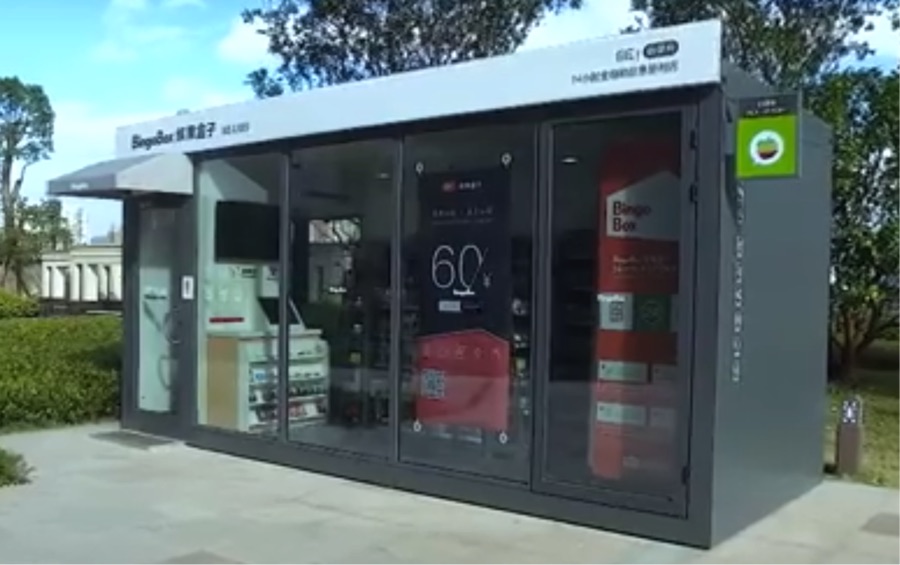A few days back the first Amazon Go convenience store opened, in Seattle. Shoppers can simply pick up the items they want to purchase and walk out. There is no need to stand in lines and go through checkout.
The only requirement is for customers to install the Amazon Go app on their smartphone and use that app when they enter the store. They can then pick up the products they want. Amazon uses multiple technologies — computer vision, sensors, machine learning — to detect the products and add them to the customers’ virtual shopping carts. Customers exit the store with their products and Amazon automatically charges the customers’ Amazon Pay account.

Amazon Go allows shoppers to pick up the items they want to purchase and walk out. There is no need to stand in lines and go through checkout. Image: Amazon.
The Amazon Go store is not strictly “human-free.” Employees are still needed to assemble products, such as salads, and stock the shelves. Employees can also answer questions. But this is a huge development in the retail world. Labor is often the highest cost for brick-and-mortar retailers.
By reducing the number of people, Amazon has made the economics of running a retail store more favorable. It has also made shopping easier for consumers. Moreover, it has eliminated theft losses as the cameras capture every item that is picked up and added to a virtual shopping cart.
Beyond Amazon Go
Will Amazon implement this human-free technology in its Whole Foods stores? And will Walmart, Target, and other competitors implement a similar technology? The answer is likely “yes.” In fact, other companies are doing it already.
Bingobox operates about a dozen human-free convenience stores in China. The stores are smaller than Amazon Go, as shown in the image below. They are similar to a large vending machine. Customers use an app to enter the store and use WeChat’s mobile payment technology to check out. For service, customers can video chat with an associate. The stores are mounted on wheels, to easily change locations.
Bingobox is aggressively promoting the franchise model, with plans to open hundreds of stores. The company raised $80 million this month, bringing the total funding to almost $95 million.

Bingobox stores are similar to a large vending machine. Shoppers use an app to enter the store and use WeChat’s mobile payment technology to check out. Image: Bingobox.
Wheelys, a provider of mobile cafes, has opened a few human-free stores in Sweden, using technology from MobyMart. Wheelys will soon open another test store in Shanghai. The stores are similar to Amazon Go: Shoppers can install an app, walk into the store, pick up items, and walk out. Shoppers’ pre-registered credit cards or bank account details are automatically charged when they exit. Wheelys is offering this technology to any retailer.
F5 Future Store is another China-based vendor. It has opened human-free convenience stores that use robots. Shoppers can select items on screens and check out using a mobile app. A robot picks up the selected items and delivers it to the customer. The stores sell food items and provide space for customers to sit and eat. The cleanup process afterward is also automated.
Tao Café is a human-free store from Alibaba in Hangzhou, China. The store, which opened in 2017, uses facial recognition to identify shoppers, who make payments using Alipay, Alibaba’s payment platform. Shoppers can pick up products and walk through a 1-meter-long scanner to purchase them. Alibaba opened the café to showcase its technology and encourage other retailers to work with Alibaba on similar stores.
Walmart is testing a service in select stores called “Scan & Go” that allows shoppers to scan items and pay using a mobile app. Customers then show the digital receipt to an employee in the store before exiting. The cashier-less checkout could make shopping more convenient and reduce labor costs. Walmart plans to expand this to hundreds of stores.
Will human-free retail be the future of brick-and-mortar stores? Please share your thoughts, below.
